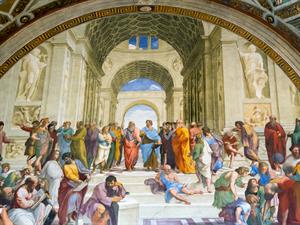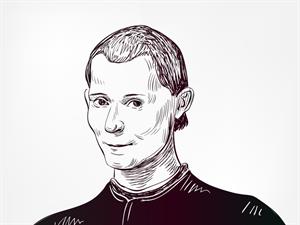
PUMPA - SMART LEARNING
எங்கள் ஆசிரியர்களுடன் 1-ஆன்-1 ஆலோசனை நேரத்தைப் பெறுங்கள். டாப்பர் ஆவதற்கு நாங்கள் பயிற்சி அளிப்போம்
Book Free DemoRenaissance Period:
Post the fall of the Byzantine empire, the world saw the rise of new religions and cultures, which enhanced and empowered people in social and political realms.

Renaissance Period
Renaissance: The Word Renaissance is derived from the Italian word “Rinascita” meaning “Rebirth”. This word signified the birth of a new period in the history of Europe.
The Stellar period of the Renaissance witnessed the emergence of new ideas and cultures. The Period of Renaissance after the middle ages saw demographic development, Intellectual awakening, Expansion of territories, change in Economy, and reshaping of cultural ideas.
Various Italian scholars visited the fallen city of Constantinople and collected numerous scriptures which aided the blossoming of the Renaissance.
The Italian Renaissance:
The Scholastic class in Italy firmly believed that they were living in a Dark period that was devoid of Intellectual principles. The burgeoning trade enhanced the cultural lives of people around the Mediterranean region.
Florence: This was a City-State in Italy where it was believed that the “Italian Renaissance began” as it was the commercial and banking capital in Europe after London.
The Wealthy inhabitants of Florence, called by the name of “Florentines” lend great support for the development of art, music and literature.
Ancient Florence City
The Scholars of Italy travelled the length and breadth of Italy and studied the ancient artefacts and ruins, which enhanced their Knowledge which was later reflected in the universities of Italy.
The study of “Humanism” formed the cornerstone of Italian Philosophy, which was reflected in their paintings and sculptures. This principle attracted students and scholars from other parts of Europe.
Literature and the Principle of Humanism:
The concept of Humanism played a vital role in literature, which aimed at cultivating morality and Intellectual thoughts among the citizens. The Humanist schools were highly critical of the existing conditions of the Medieval period.
The School of Humanism combined the ideals of Classical and Christian texts to produce a new model of Education around Europe.
Humanism: It is an Optimistic Philosophy that views man as a rational being who can think and attain greatness.
The Humanists strongly believed that education is a tool to transcend the afterlife with a clear state of Mind. Some of the Italian philosophers and their thoughts on education are given below.
1. Francesco Petrarch:
He was an Italian Poet and Scholar who rediscovered the letters of Cicero, which kindled the thoughts of Renaissance. He was also credited as the “Father of Humanism” for his philosophical and classical texts that were written during the 14^{th} Century.
2. Niccolo Machiavelli:
Machiavelli existed during the 16^{th} Century. He was a statesman who went into exile due to the volatile political condition of the state. He wrote a political treatise named “The Prince”.

Niccolo Machiavelli
This book spoke about the ideals of the ruler who should be calculating, brutal and also permitted to use immoral tactics to attain the means.
Machiavellian Principle: His ideals state that “ends are always important than the means”, this principle is known as the Machiavellian Principle.
3. Erasmus:
He was a Dutch Renaissance Humanist who was known by the sobriquet “Prince of the Humanists” for the critical stance he took against the Church and its principles.
He was also part of the European religious reformation who wrote an “In Praise of Folly” which criticized the role and rituals of the Church.
Reference:
Renaissance Period: Viacheslav Lopatin / Shutterstock